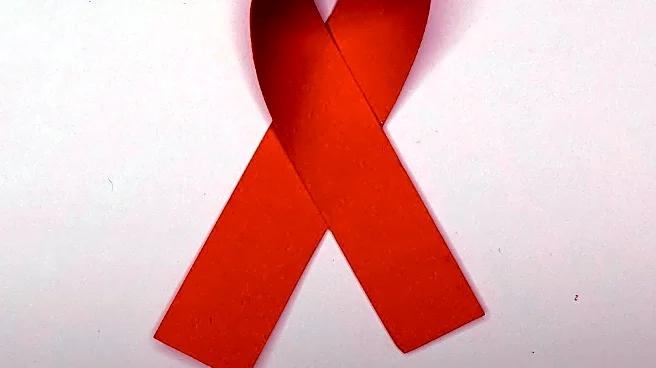What is the story about?
What's Happening?
The U.S. government announced plans to purchase 2 million doses of the HIV prevention drug lenacapvir for distribution in low-income countries by 2028. This initiative, under the PEPFAR program, aims to address gaps left by recent foreign aid cuts that disrupted HIV care in many nations. Lenacapvir, a twice-yearly shot, has shown superior protection against HIV compared to daily pills. The U.S. will collaborate with the Global Fund to prioritize distribution to pregnant and breastfeeding women in hard-hit regions.
Why It's Important?
This move represents a significant step in global health efforts to combat HIV, particularly in regions severely affected by the virus. By providing lenacapvir at no profit, the U.S. aims to mitigate the impact of foreign aid reductions and support vulnerable populations. The initiative could enhance international relations and demonstrate U.S. commitment to global health, potentially influencing future collaborations and funding strategies.
What's Next?
The U.S. will work with governments in affected countries to implement distribution plans, potentially expanding access to HIV prevention. The collaboration with the Global Fund may lead to further investments and initiatives to combat HIV globally. Monitoring and evaluation of the program's impact will be crucial to ensure effective implementation and address any challenges.
Beyond the Headlines
The initiative may influence the pharmaceutical industry's approach to drug pricing and distribution in low-income countries, potentially setting a precedent for future health interventions. It also highlights the ethical considerations of drug accessibility and the role of developed nations in supporting global health equity.
















